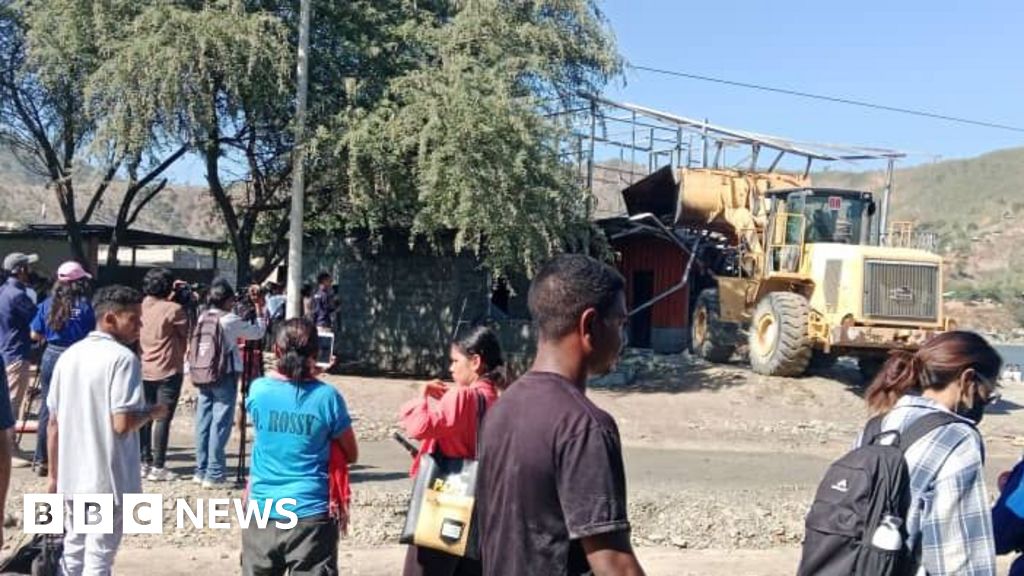Family homes are being demolished near East Timor’s capital Dili, an area where Pope Francis will celebrate Mass next month.
According to evicted residents interviewed by the BBC, nearly 90 people have been told by the government that they must find new accommodation before his arrival.
The East Timor government denies that the expulsions are related to the papal visit, insisting that residents are living there illegally.
Authorities have spent around $18 million (£13.6 million) on the pope’s three-day visit, which begins on September 9.
“We are very sad,” local resident Zerita Correia told BBC News.
“They even demolished the contents of our house. Now we have to rent a house nearby because my children still go to school in this area,” she added.
A spokesman for the residents said that 11 families will be relocated before Pope Francis arrives in East Timor. The government has paid them $7,000 to $10,000 for housing.
“This amount is not enough to meet the needs of every family,” Venancio Ximenes told the BBC.
“The next phase of deportations will take place after Pope Francis leaves and will involve more than 1,300 families,” he added.
The houses are located in Tasitolu, a wetland outside Dili. Over the past decade, hundreds of people have moved there from rural areas of the country.
Many people came to the capital in search of work and built basic houses in the area. The government says they are squatters and have no right to live on the land.
A government minister told the BBC that residents had been informed of plans to clear the area in September 2023.
“It is time for the state to take back its property,” said Germano San Brittés Díaz, secretary of state of the Organization of Toponyms and Cities.
“Last year we had heart-to-heart conversations with the community and now they have to leave and return to their villages,” he added.
700,000 people are expected to attend Pope Francis’ open-air Mass in Tasitolu, where preparations are being made for the event covering an area of 23 hectares – equivalent to about 40 football pitches.
In addition to the government’s controversial plan to evict residents, critics have questioned the government’s decision to spend so much money on the visit – including spending $1 million to build a brand new altar to Pope Francis.
According to the United Nations, nearly half of Timor-Leste’s population currently lives below the national poverty line.
Mariano Ferreira, a researcher at Timor-Leste’s Institute for Development Monitoring and Analysis, told UCA News: “The country’s annual budget to increase food production is only about US$4.7 million.”
“All this spending does almost nothing good for the food supply,” he added.
Next month will be Pope John Paul II’s first visit to East Timor since 1989, when the country was still under Indonesian occupation.
East Timor, formerly known as Timor-Leste, has a population of 1.3 million, the vast majority of whom are Catholic.
When Indonesia invaded the former Portuguese colony in 1975, only about 20% of East Timorese were Catholic. Now that number is 97%.
Enthusiasm for the pope’s upcoming visit is high, but campaigners are urging him to address the recent abuse scandal that has stained the country’s church.
In 2022, the Vatican admitted that East Timorese independence hero Bishop Carlos Jimenez Bello, a Nobel Peace Prize winner, had sexually abused young boys.
A Vatican spokesman said the church was informed of the case in 2019 and took disciplinary measures in 2020, including restricting Bello’s movements and banning voluntary contact with minors.
It is unclear whether Pope Francis will apologize for the scandal, meet with the victims or even whether Bishop Bello will appear with him in Dili.

